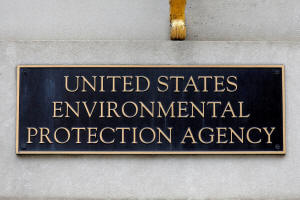Biden admin proposes protections from chemical used to sterilize
equipment, spices
 Send a link to a friend
Send a link to a friend
 [April 12, 2023]
WASHINGTON (Reuters) - The Biden administration on Tuesday
proposed new health protections to reduce exposure of U.S. workers and
communities to ethylene oxide, a toxic, colorless gas mainly used to
sterilize medical equipment and spices. [April 12, 2023]
WASHINGTON (Reuters) - The Biden administration on Tuesday
proposed new health protections to reduce exposure of U.S. workers and
communities to ethylene oxide, a toxic, colorless gas mainly used to
sterilize medical equipment and spices.
The Environmental Protection Agency issued a proposed rule with new
requirements at 86 sterilizer facilities across the country, that if
finalized, aims to reduce ethylene oxide (EtO) emissions by 80%.
Long-term exposure to EtO can have health implications, including
certain cancers, studies say. The proposed rule is part of President Joe
Biden's initiative to cut the death rate from cancer and create new
treatments to fight it.
"At EPA, we recognize that ensuring that all people have clean air to
breathe is not just an important responsibility and our job under the
law, but it's also a moral imperative," Janet McCabe, the agency's
deputy administrator, told reporters in a teleconference.

[to top of second column]
|

Signage is seen at the headquarters of
the United States Environmental Protection Agency (EPA) in
Washington, D.C., U.S., May 10, 2021. REUTERS/Andrew Kelly/File
Photo
 The rules aim to reduce use of EtO
at the facilities to 500 milligrams per liter (about a half teaspoon
per quarter gallon) while working with the Food and Drug
Administration to make sure all sterility requirements are met. An
EPA official told reporters that some facilities have already
reduced use of EtO to appropriate levels while others use up to
twice the proposed amount.
The agency also proposed prohibiting certain uses of EtO where it is
used to a lesser extent and alternatives exist, including in
museums, archives, beekeeping, cosmetics and musical instruments.
The proposed rule will be open for a 60-day public comment period
and the EPA aims to finalize it in 2024.
(Reporting by Timothy Gardner; editing by Jonathan Oatis)
[© 2023 Thomson Reuters. All rights
reserved.]This material may not be published,
broadcast, rewritten or redistributed.
Thompson Reuters is solely responsible for this content. |